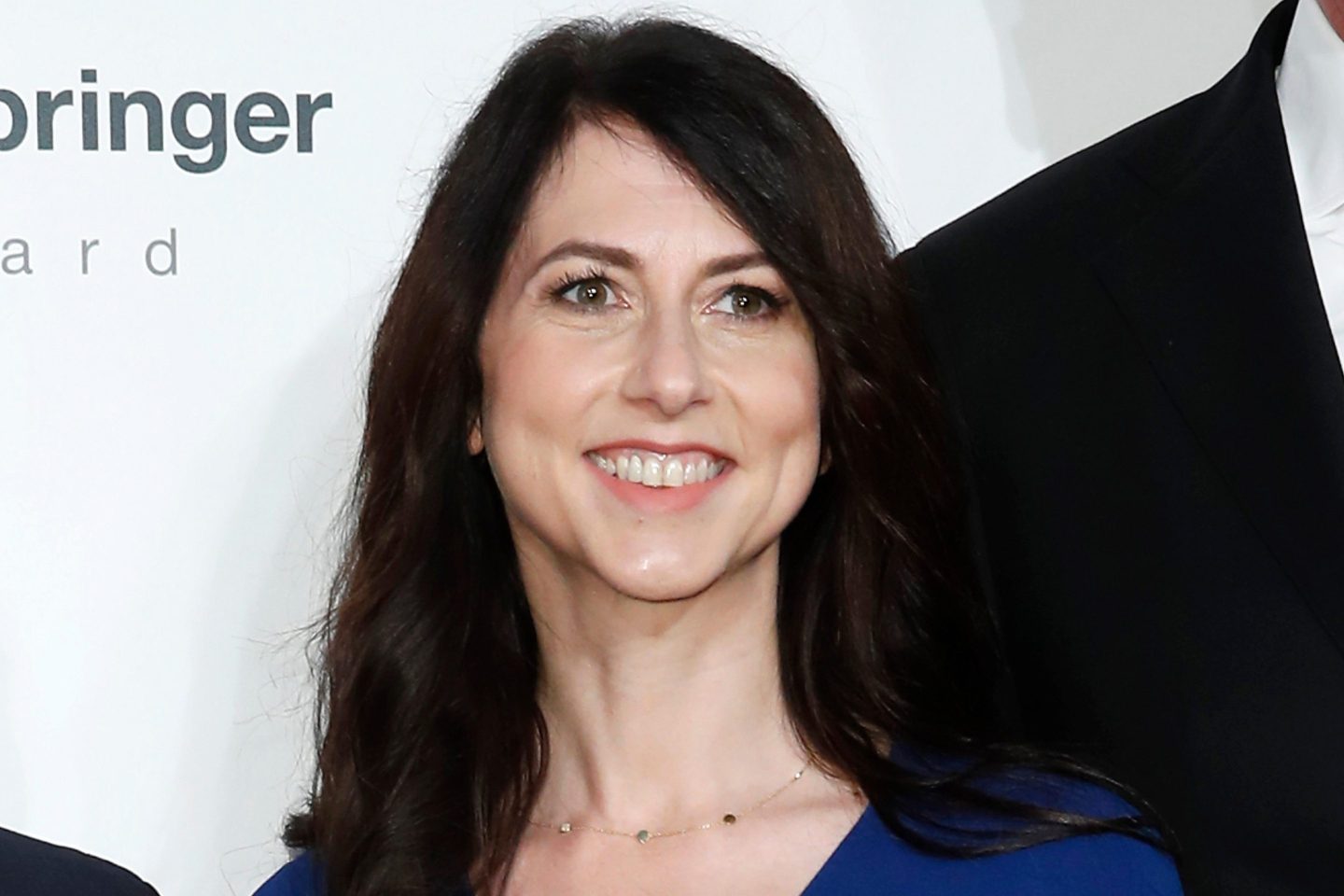“Hey! Teacher! Leave them kids alone!”
That’s a lyric from Pink Floyd’s “Another Brick in the Wall, Pt. 2,” and it’s the theme for corporate venture capitalists in 2024, said Counterpart Ventures cofounder and partner Patrick Eggen.
“Hey parents, leave your CVCs alone,” Eggen told Fortune. In this case, the parents are large companies who have in-house venture capital arms and who have a tendency to (perhaps) meddle a little too much. “We understand the scrutiny, but give them a little breathing room.”
Counterpart has just released its annual report in collaboration with Silicon Valley Bank, taking the temperature of the CVC landscape. For all the tumult that venture broadly and CVCs specifically have experienced over the last few years, CVCs remain a key part of the funding landscape—in 2024, CVCs participated in 28% of overall venture deals. That number has remained steady for nine years, lingering in the range between 27% and 31%.
But just because CVCs are entrenched doesn’t mean they’re not evolving. There’s certainly been a shift from 2023, which emphasized measured strategies, Eggen said. However, in 2024, he wants to remind everyone that in order for CVCs to be successful, they need some level of autonomy, even if that autonomy fundamentally needs to be earned.
The goal of a CVC varies company by company. Some seek to deliver financial returns, while others emphasize strategic goals. Some invest off the balance sheet, whereas others are more independent. So that means that there are many kinds of success, and many kinds of failure.
“CVCs are getting a lot more scrutiny, some fair and some not,” said Eggen, who was a VC at Qualcomm Ventures before launching Counterpart a few years ago. “But ideally, if CVCs are good actors and do really quality deals, serve as a sensor for the mothership, get all this market intelligence, balance both strategic and financials—if they check all those boxes, leave them alone.”
Broadly, it’s clear things have been shuffling around strategy-wise for CVCs. For example, CVCs are targeting earlier stages. Since 2021, the share of CVCs targeting pre-seed and seed companies has jumped from 6% to 13%, while the percentage of CVCs describing themselves as stage agnostic has dropped from 21% to 12%, according to the report.
CVCs have a unique set of risks to contend with, Eggen said. Those risks fall into three buckets: dependency risk (on the parent company), dormancy risk (lack of pressure to deploy capital), and disconnect risk (misalignment between the CVC and the parent company’s understanding of venture investing).
So success then comes down to having the right structure, streamlining decisions, and embracing incentivized economics (looking at you, carried interest). Ideally, this will all be baked into the CVC cake from the beginning—and that is possible. Eggen points to Japan-based ceramics and electronics conglomerate Kyocera, which launched a new U.S.-based fund this month, as a CVC example worth emulating in these respects.
But above all else, the key factor that determines a CVC’s success is the parent’s knowledge of venture capital and willingness to hunker into the asset class.
“They have to be dedicated to it,” said Eggen. “It’s not a three-year tourist attraction.”
Elsewhere…Mira Murati is leaving OpenAI. Read more about the CTO’s departure here, and here’s Fortune’s profile of her from last year.
See you tomorrow,
Allie Garfinkle
Twitter: @agarfinks
Email: alexandra.garfinkle@fortune.com
Submit a deal for the Term Sheet newsletter here.
Nina Ajemian curated the deals section of today’s newsletter.
VENTURE DEALS
- Zing Health, a Chicago, Ill.-based health insurance company, raised an incremental $140 million in funding. Health 2047 Capital Partners, CRG, and First Trust Capital Partners led the round and were joined by existing investors Newlight Partners, Town Hall Ventures, Health 2047, and Leavitt Equity Partners.
- Supabase, a remote open source platform and Postgres database service, raised $80 million in Series C funding. Craft Ventures and Peak XV led the round and were joined by existing investors Coatue, Felicis, and Y Combinator.
- UJET, a San Francisco, Calif.-based AI-powered cloud contact center solutions provider, raised $76 million in Series D funding. Sapphire Ventures led the round and was joined by KeyCorp, IonPacific, and existing investors GV, Kleiner Perkins, Citi Ventures, and others.
- Dandelion Energy, an Arlington Va.-based home geothermal company, raised $40 million in Series C funding. Google Ventures led the round and was joined by Collaborative Fund, LenX, Breakthrough Energy Ventures, and NGP.
- Raycast, a London, England-based productivity tools platform, raised $30 million in Series B funding. Atomico led the round and was joined by Accel, Coatue, Y Combinator, and others.
- GEOX, a Givatayim, Israel-based real estate risk AI analysis platform, raised $19 million in Series A funding. Flashpoint Venture led the round and was joined by Suretech Partnership, Ariel Maislos, and Noam Lanir.
- DeepOpinion, an Innsbruck, Austria-based enterprise agentic process automation platform, raised €11 million ($12.3 million) in Series A funding. Red River West and AIpha Intelligence Capital led the round and were joined by existing investors Lunar Ventures and Stride VC.
- PACT, a Cambridge, England-based collagen-made biomaterials developer, raised £9 million ($12 million) in seed funding from Hoxton Ventures, ReGen Ventures, Celsius Industries, and Polytechnique Ventures.
- Tamnoon, a Seattle, Wash.-based cloud security company, raised $12 million in Series A funding. Bright Pixel Capital led the round and was joined by Blu Ventures, Mindset Ventures, and existing investors Merlin Ventures, Secret Chord Ventures, Inner Loop Capital, and Elron Ventures.
- Oak Essentials, a Los Angeles, Calif.-based beauty brand, raised $8 million in Series A funding. Silas Capital led the round and was joined by Unilever Ventures.
- DefectDojo, an Austin, Texas-based application security management platform, raised $7 million in funding from Iolar Ventures, Aspenwood Ventures, and others.
- Infact, a London, England-based credit reference agency, raised £4 million ($5.4 million) in seed funding. AlbionVC led the round and was joined by 13books Capital, Outward VC, Form Ventures, and Portfolio Ventures.
- AminoChain, a New York City-based bio-sample marketplace developer, raised $5 million in seed funding. a16z crypto led the round and was joined by Cercano.
- Tetrix, a New York City-based AI-powered alternative investing insights platform, raised $5 million in seed funding. Innovation Endeavors led the round and was joined by angel investors.
- Bluebricks, a Tel Aviv, Israel-based cloud management platform, raised $4.5 million in seed funding. Flint Capital and Glilot Capital Partners led the round and were joined by Yochay Ettun, Raz Shaked, angel investors, and others.
- La Solive, a Paris, France-based energy renovation school, raised €4 million ($4.5 million) in Series A funding. Partech and existing investor Brighteye Ventures led the round and were joined by angel investors.
PRIVATE EQUITY
- Thompson Street Capital Partners acquired a majority stake in ATIS, a St. Louis, Mo.-based elevator and escalator safety inspections, consulting, and managed services provider. Financial terms were not disclosed.
EXITS
- Beach Point Capital Management acquired a majority stake in Metro Franchising, a New York City-based Dunkin' franchisee, from Quilvest Capital Partners. Financial terms will not be disclosed.
- L Catterton agreed to acquire a majority stake in [solidcore], a Rosslyn, Va.-based strength-training fitness studios network, from VMG Partners, Kohlberg & Company, and Peterson Partners.
OTHER
- Commvault agreed to acquire Clumio, a Santa Clara, Calif.-based AWS data protection provider. Financial terms were not disclosed.
IPOS
- BioAge Labs, a Richmond, Calif.-based small molecule therapies biotech company, plans to raise $199.5 million in an offering of 10.5 million shares priced between $17 to $19 on the Nasdaq. Andreessen Horowitz, Khosla Ventures, Sofinnova Venture Partners, Longitude Venture Partners, RA Capital, Cormorant, Kaiser Permanente, and Horsley Bridge back the company.
PEOPLE
- Madison Dearborn Partners, a Chicago, Ill.-based private equity firm, promoted Vahe Dombalagian as managing partner.













